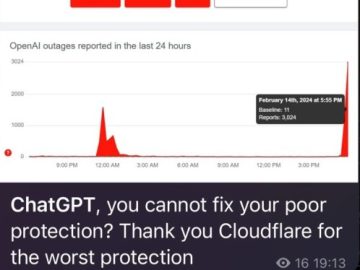It started with a phishing scam targeting Swiss citizens, but what authorities uncovered led them to one of the largest cybercrime operations in West Africa.
Eight arrests in Côte d’Ivoire and Nigeria mark the success of INTERPOL’s latest cybercrime crackdown, Operation Contender 2.0. Aimed at combating the rising tide of cyber-enabled crimes in West Africa, the operation highlights how global law enforcement collaboration is key to disrupting organized cybercriminal networks.
Phishing Scam Hit Swiss Citizens
Côte d’Ivoire authorities, working closely with Swiss police and INTERPOL, dismantled the large-scale phishing scam that defrauded Swiss citizens out of more than $1.4 million.
The scam, active between August 2023 and April 2024, involved fraudsters posing as buyers on small advertising websites. They duped victims by sending QR codes that led to fake websites mimicking legitimate payment platforms. Once victims entered sensitive information, like their login details and card numbers, cybercriminals impersonated customer service agents to reinforce their deception.
With over 260 reports of the scam in Switzerland, investigators linked the cybercriminals back to Côte d’Ivoire, where INTERPOL’s intelligence helped local authorities track and arrest the operation’s ringleader.

The arrest revealed further details of the suspect’s illicit activities, including financial gains totaling over $1.9 million. Forensic analysis of seized digital devices is ongoing, and more arrests are expected as investigators widen their net to recover stolen funds and identify other victims.
Romance Scams and Business Email Compromise: A Broader Threat
INTERPOL’s African Joint Operation against Cybercrime (AFJOC), which began in 2021, was instrumental in facilitating these arrests. Its mission extends beyond phishing, targeting a range of cybercrimes that plague both individuals and businesses globally.
One significant focus is business email compromise (BEC), a sophisticated form of phishing where cybercriminals trick executives into transferring large sums of money or divulging sensitive information by exploiting trust and authority.
Romance scams, another common tactic, also draw AFJOC’s attention. In these schemes, criminals create fake online identities to build relationships with their victims, often to swindle them out of money or digital assets, such as cryptocurrency.
One recent case involved a Finnish victim who was defrauded by a Nigerian cybercriminal. The Nigerian Police Force, using intelligence provided by INTERPOL and its private-sector partners, arrested the scammer in April 2024. Further investigations linked the individual to other romance fraud cases.
Leveraging Global Cooperation to Combat Cybercrime
The success of Operation Contender 2.0 emphasizes the critical role of international cooperation in fighting cybercrime. Law enforcement agencies from various countries, supported by organizations like INTERPOL and private-sector companies like Trend Micro and Group-IB, combined their resources and intelligence to effectively dismantle these criminal networks.
Neal Jetton, Director of INTERPOL’s Cybercrime Directorate, noted, “Leveraging the increased reliance on technology in every aspect of our daily lives, cybercriminals are employing a range of techniques to steal data and execute fraudulent activities.”
As cybercriminals become more sophisticated, the need for collaboration between public and private sectors continues to grow. The AFJOC initiative, funded by the UK’s Foreign, Commonwealth & Development Office, aims to keep West African countries at the forefront of combating cyber-enabled crimes by integrating cutting-edge technology, intelligence sharing, and international partnerships.
A Growing Threat in West Africa
The cybercrime threat in West Africa is becoming increasingly complex. Criminals in this region are no longer just targeting local victims; they are branching out to defraud individuals and businesses worldwide. The use of advanced phishing techniques, BEC scams, and romance fraud highlights how quickly cybercriminals are evolving their tactics.
Operations like Contender 2.0 not only shine a spotlight on these crimes but also demonstrate the tangible results that global law enforcement can achieve when they pool their resources. The seizure of digital devices during these arrests has opened the door to new investigations, with experts hoping that further analysis will reveal the full scope of these criminal operations.
Looking Ahead: More Operations, More Arrests
While Operation Contender 2.0 has made significant strides in combatting cybercrime in West Africa, this is just one part of a much larger global effort to curtail cyber threats. Ongoing investigations by local authorities in Côte d’Ivoire, Nigeria, and other countries involved in AFJOC will likely lead to additional arrests and the recovery of more stolen funds. Authorities are confident that dismantling these cybercriminal networks will help deter other syndicates operating in the region.
As INTERPOL continues to enhance its intelligence-sharing capabilities and forge new partnerships, the global fight against cybercrime remains relentless. Every successful operation weakens the foundation of cybercriminal organizations, bringing law enforcement one step closer to reducing the financial and emotional toll these crimes have on victims.



